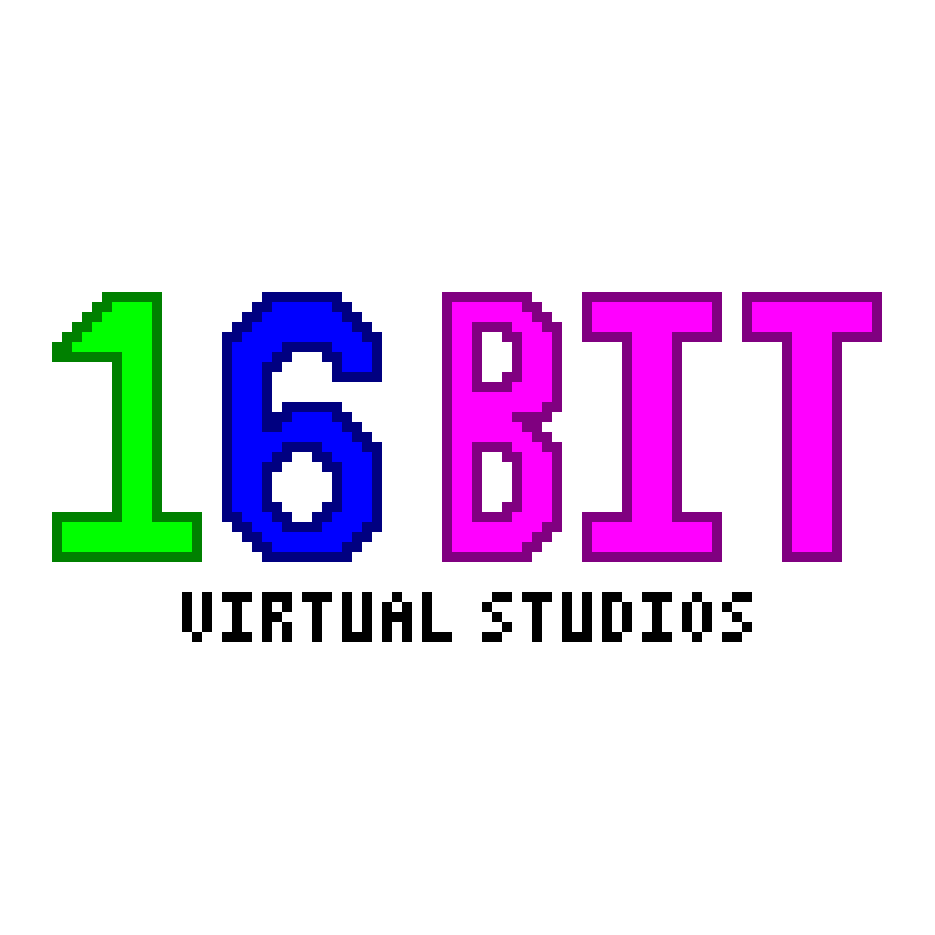I’ve been a Steam customer for a very long time, having spent a few thousand dollars over the years with them. Like many of you, I’ve got a (small?) group of games that I bought and barely-if-ever played, and I’m cool with that. As they say, piracy is a service problem, and Steam is just… easy.
That was until I bought my Deck. Suddenly, I had two devices on which I could play my games: my proper gaming rig upstairs and my Deck plugged into the TV downstairs.
I also however, have a kid that likes video games, so sometimes I let her play a few games on the TV… and that’s where everything breaks down. If she’s playing Lego Marvel on the Deck, my copy of Dyson Sphere Program flakes out upstairs with a warning that “someone else is playing a game, so this game will have to shut off” or some nonsense like that.
I’m suddenly face to face with the fact that I don’t actually own my games and those few thousand dollars weren’t spent on what I expected. It’s… enraging to put it gently.
I can appreciate that there would be an attempt to prevent me from playing the same game on two devices (though I think that’s bullshit too), but to prevent me from playing two different games on two different machines when both are legally purchased running on my own hardware is not ok.
They actually improved this recently however you need a second account and add it to your family, prior it would work just like this with one account, only one user can use a game attached to a library. However now as long as it’s not the same game, it let’s you play whatever on the second account.
How is this any different from not having a steam deck and having to share the one PC?
im not giving my kid access to hentai puzzle castle 7.
I know this is a joke, but with family sharing you can pick what games get shared.
Use Family Sharing, instead of sharing your account. Steam’s Family Sharing program is actually one of the most generous in the industry. It used to be the case where you’d get booted off of a game if the person who owned it opened a game. But they changed it a while back, to where you essentially have a digital bookshelf of games, and sharing members can choose from any game on the shelf. As long as you’re not trying to play the same game, everything is kosher. Or hell, you can even buy multiple copies of the same game if you want to play together, the same way you can keep multiple copies of a game on a shelf.
Switching accounts on the Steam Deck is easy too, because you simply pick which profile you want to use. You can set account restrictions, like maybe you only want your kid to be able to play E or E10+ ESRB rated games. Plus it means you’re not sharing save files, because each profile has their own saves; Anyone who has ever lost a cherished save file because of a younger sibling hitting “New Game” will be able to see the value in that. There’s very little reason to avoid setting up Family Sharing.
Honestly, this is 100% the solution for this problem, especially for sharing with a child.
Now, the issue of having a “license” and rights to play a game, vs actually owning the game is still a valid point of contention.
I agree. While Family Sharing may be an option, it really shouldn’t be necessary. Why shouldn’t “I” (whether it’s my dad playing Cities: Skylines, or actually me playing a round of Balatro on the Deck while waiting for a DotA queue to pop) be able to play two different games that I paid for at the same time without having to jump through any hoops? Before I knew about Family Sharing, I accidentally kicked my dad off Cities: Skylines far too many times simply by waking up my Deck.
Funnily enough, now Family Sharing largely isn’t necessary because I started buying a bunch of my games on GOG which means I rarely use my Steam Deck because of how difficult most GOG games are to get running.
they aren’t difficult to get running on Deck
Bro, seriously.
Your account is yours only. If you want to share your library with her, make her an account and add that to your famiy group. I do this with my 2 kids and everyone plays whatever they want, simultaneously.
My child is not old enough to read, let alone login and create an account. I even think there are legal protections for her against this kind of thing in my country…
He does not need to login with a user and password. He just needs to chose his/her avatar and that’s it. Every game console has this.
My child is not old enough to read, let alone login and create an account.
“make her an account” does not mean that she should do it on her own.
@thedaemon @warmaster Same issue here.
Creating Steam accounts for my kids requires creating and managing e-mail addresses for them.
E-mail and Steam are social network and terms of service do not allow people below 13 yo to have an account.
So I don’t that Family share is a solution.Create your own 2nd/3rd account, and use the same emails but with the + option. https://www.streak.com/post/gmail-plus-addressing-trick (This works with more than just Gmail) So your main account is [email protected], then your second account would be [email protected]. This way you don’t have many different emails to manage, but Steam (last I checked) will see these all as different so everything can be managed by you.
This is a problem that Steam Family Share exists to solve.
the fact that I don’t actually own my games
It doesnt solve this in the slightest. Steam and game publishers can always take your games away without prior notice.
You’re being needlessly pedantic for the sake of outrage. It solves OP’s problem of playing their library in multiple rooms simultaneously.
You never own any game, unless you code it yourself. You might hold a CD in your hands, but the game is still owned by someone else. You only have the right to use it as noted in the license you agreed by purchasing it.
It’s true. Every book, movie, game or piece of software you’ve ever used (unless you made it yourself) has been subject to some kind of licence, that can be revoked.
Sure but no one is going to come in to my home and take my physical books away in the same way that can happen with online digital services.
You can reverse this logic though. If you lose or damage your physical copy it’s gone forever, digital copies can mostly be redownloaded/recovered anytime.
I had never thought about this but this is a great argument in favor of digital vs physical.
Still I prefer owning my games when given the choice.
One issue is that, unless you (can) back them up yourself, digital goods can be changed. If I bought The Twits on Kindle, it literally wouldn’t be the same book that I read as a child because they decided that words like “ugly” are too much for children. Even if I bought it before they censored it - it would be “updated”.
It’s a great argument for backups. I don’t think clod/DRM based services are the best backup - certainly they’re not a complete backup system.
If you have a local system and/or communication failure, or bandwidth limitation; how long to restore the backup?
A backup on a local storage should be possible to plug into another computer and access fairly easily.
Ideally your backup system will give some resilience against many types of risk scenario, especialy for the data you care most about or can’t go for a long time without. The fact that it’s harder to backup DRM stuff is a limitation - so I’d avoid DRM unless i don’t care about the thing.
You have no idea what you are talking about. You can own and resell any physical piece of game media. If you have a gameboy cartridge, nobody can take that game away from you. Also if you have DRM free game files from gog, nobody can take that away from you.
The only case where this disgusting lincense shit is possible, is when games require being online and logging in to unlock the DRM.
Your physical media will degrade over time and you will eventually lose access to the game you bought physically. There’s no correct answer in this, unfortunately, and is fully your opinion. You can own and resell your physical media until it no longer functions and then where are you? You’re in the same boat as the person who bought digitally and lost access to their license. Even DRM free games from gog are only around until they stop hosting your download. If they stop hosting it and the hardware you own with your copy on it fails, you will again own nothing.
This argument applies to almost anything that’s possible to own, though. What happens when your bike degrades to the point that it’s not usable as a bike anymore?
1000% it does. But if your tires wear out you can buy new tires. If a chip wears out in your game boy color cartridge, are you going to replace it? Is there a shop you can bring your old PS2 disc to that can restore lost data?
Edit: I think a bike is a flawed analogy because you can repair a bike. You can’t repair an old physical game if it breaks. You can buy a replacement in both cases, until there are no longer bikes or no longer copies of old games still functioning and I’ve got a hunch that bikes are going to be around a lot longer than any physical media.
I think it’s a pretty apt analogy. A game boy cartridge is repairable if you know what you’re doing and have the replacement parts. Not to mention that older bikes aren’t necessarily going to be able to use more modern parts.
Although, at least with DRM-free games you’re given all the tools to preserve the game yourself if you want to.
You’re totally correct. The reason you’re getting downvoted is because that seems tangential to the problem you mentioned (an account can only play one thing at a time), which already has a solution (Family Sharing).
But yes, the world needs strong digital ownership laws yesterday.
Steam and game publishers can always take your games away without prior notice.
Technically: Yes. Legally: Doubtful.
Publishers can choose to no longer run servers but to remove games from the accounts without compensation, would be legal trouble.
When Sony axed Concord, all buyers got a full refund for a reason and that reason isn’t that Sony is such a caring company.
There is no doubt. Sony is actually a great example because they were the ones who tried to remove purchases from Discovery. They faced zero legal consequences. There wasn’t even any discussion of legal consequences because it’s perfectly legal. Ultimately Sony worked it out with Discovery to restore those purchases but they did not do that out of legality or out of kindness. They did it for their reputation. If Sony starts removing your streaming purchases, the same purchases you can make any a dozen other platforms, are you going to continue purchasing from them? Hail nah.
Concord was a bit different in that the content was only available for ~2 weeks so I’d imagine that would fall into some sort of legal grey area and they’d end up being sued or worse. As of yet, I don’t think “how long must ‘purchases’ be available?” has been tested in court.
There is no doubt. Sony is actually a great example because they were the ones who tried to remove purchases from Discovery. They faced zero legal consequences.
The legal justification is right there in the byline of the article you’ve linked.
Yes that’s why I linked to the article so you could see how you were incorrect.
Yes, but that problem has literally nothing to do with the Steam Deck.
Fair, with steam i think most people got into it years ago before “ownership” was even a concern, back before online games were so frequently shutdown soon after release. Its a good thing GOG and Sailing the 7 Seas are an option for preservation, not that it helps with online only games.
Now i still invest in steam because of its convenience. As soon as it becomes more cumbersome to use, i am done. Tbh if 3rd party app stores/secondary drm become more common on the store i will probably stop investing in steam. Its already a big issue that stops me from buying games…(Think denuvo)
Consoles are already to the point where its near impossible to own your game. Xbox overpriced their consoles so we dont buy them and just invest in gamepass. Not to mention their consoles dont work without online accnt. Playstation requires online activation for a disc drive to work with their new consoles. Nintendo doesnt even put 3rd party switch 2 games on the cartridge anymore.
I feel you, but steam is definitely the lesser of the evils here letting you use it on almost any hardware you want, even if you cant avoid the drm(for most games)
I don’t see how family share solves anything, I looked it up a few years ago, and it seemed pretty useless.
What exactly does family share do that is actually useful?Edit:
We have tried it now, and yes now you can actually play games owned by other family members.
I’m pretty sure that the current functionality wasn’t available last I read about it on Steam.
Now it does what you’d expect from the name.It lets you play a game on your account while someone else plays a different game from your account. Its literally the solution for ops issue.
I just enabled family share with my wife, but none of us has the games of the other?
And there is no hint of why?Sorry, there apparently was a second mail the joining party needed to confirm, works now! 👍 😎 😋
They updated it in September:
Family Sharing enables you to play games from other family members’ libraries, even if they are online playing another game. If your family library has multiple copies of a game, multiple members of the family can play that game at the same time. For a more detailed look at how Family Sharing works, see the FAQ below.
They changed it recently where you can have two members of a family able to play two different games at ones (or rather number of copies of the game at once).
But that requires different accounts even if one account owns all the games.
Can we just declare us family members and then have access to each others libraries?
Yes
With a caveat - you need to share an ip address with the user at some point. A friend of mine logged into Steam on a pc in my house to get around that issue but my brother (who’s 1400 miles away) joined my family with no issues because we lived together at some point a decade ago.
Yes, but there are limitations on switching, iirc something like 6 months between being able to join a different family and so on. They don’t really matter for actual families, but does if you just want to share games with a bunch of friends.
Sounds fair enough, and not a problem here.
I have a family set up with my brother, two childhood friends, and one of the friends wife. They don’t check anything, just have to be invited to join.
And atm, ive been playing Oblivion at the same time as my friend, just have to go offline before starting the game.
OK sounds like we should try it out.
Funny you mention Oblivion, because that’s one of the games I don’t have, but my wife does.
Put your steam deck in offline mode, problem solved for anything that doesn’t need to ping a server. That’s what I do with my kids.
I don’t disagree on digital rights and all that, but I am able to game because of my Steam Deck.
Steam Families User Guide & FAQ: https://help.steampowered.com/en/faqs/view/054C-3167-DD7F-49D4
My understanding is this should fix your issue. Also, none of that is actually a Steam Deck issue.
I think that its quite clear they don’t have an issue with the steam deck - they’re just voicing that it brought to light how they don’t own their games and it turned them off from buying more licenses on Steam
Yeah. Only GoG nowadays allows you to actually buy and own your games.
And itch, and when devs distribute their own games
I have set up a steam family and created accounts for my kids. Other than only having one copy of some games or games not supporting family sharing it’s been great. I have control over the games they can see in their libraries and we can all play different or the same game with enough licenses at the same time. We often play valheim together.
Don’t use the same account for 2 different people. Create another and use Steam Family sharing to fix your issue.
although you still won’t “own” your games, but that’s the life of a PC gamer. Best you can do is buy from GOG or find/run shady cracked versions.
Thanks, I’ll look into that.
As many others have said, this is because you’re using the same account on both devices, and Steam’s DRM policies will stop you from being able to do what you described. So I won’t go into re-mentioning the many suggestions others have talked about.
What I do want to mention, however, is that this isn’t a problem that comes from having the Deck itself. Set up a separate computer in your living room and use your Steam account there, and you would have the same problem. Does that mean you should be turned off from buying a new computer that’ll run parallel to your main gaming rig?
Absolutely. This is less a criticism of the Deck (which I love) and more about my own coming up against this annoying DRM that I never even knew existed because I only had one place to play.
Welcome to the painful world of DRM that we live in :’)
And to be fair to Steam, they did recently issue a statement and tried reflecting it in their stores to say that you don’t actually outright own all the games you “bought”, as, for some, you are merely purchasing the license to play games that the publishers have decided to put behind a DRM. This has always been the case since the dawn of DRMs, and it was implied that people should understand it, but recent events have made it clear that a lot of people aren’t even aware of it. So you’d be forgiven for not knowing.
It’s funny, I flocked to Steam because I was under the impression that I was owning the games. While other companies were trying to get me to sign onto their “play everything” subscriptions and Google had their “Stadia” (remember them?), Steam let me download the game and install it on my (Linux!) computer with no license key checks, working offline etc. etc. I feel like the assumption that I was in fact buying my games, rather than a license to play them when Steam saw fit was a reasonable one. This discovery was quite enraging.
Again, you’d be forgiven for that. The design language around these sorts of license purchase has been frequently framed as a straight purchase by many companies on the Internet that it’s become essentially the norm that many don’t question. DRM is also proposed without ever stating that it essentially makes the end user purchase a license, as it frames itself as a way for the publisher to retain some control over the product that’s in their interest, and that the end user don’t even need to really know until the rights are exercised. It’s an infuriating piece of technology that is straight up designed to be a rug pull from the get-go.
But, again, to be fair, not all games on Steam have DRM from some info I’ve gathered before. It was impossible to tell, but I think Steam actually shows a little info box now to clarify that DRM is in place or not.
Could your daughter play in offline mode? If it is not connected to the internet stream does not know you have two devices playing at a time.
Just pirate the copies of games you’ve already paid for if you want safety and archival.
This is the way. For every steam game I don’t have on gog, I have a repack on my backup NAS.
Should be legal as well as backups are legal. Your lawyer would have a good time in court making you moolah by claiming: There is no way to own games anymore, and steams and other storefronts language use of “purchase” rather than “rent” is misleading.
Heroic Launcher and GOG is your friend. DRM free ftw.
But seriously Steam Family sharing is the way to go here.
Yeah I’ve recently started tinkering with GOG in part due to this issue. I’m using Lutris in Linux rather than Heroic. I’m not sure if there’s a benefit to one over the other, but either way the size of the library of available games is quite small by comparison and of course I have lots of games trapped in Steam now.
Underneath they are similar, however I was in the same boat as you. Lutris first however after installing a few apps I moved towards heroic.
Heroic is easier to manage your library requires less tinkering and as a benefit for steam deck owners, has controller support in the gui by default and native integration with epic games store.
Lutris works better for non platform games, like old PC games from CDs or EA App.
How I’ve been moving my games over is rebuying games I would be gutted to loose like Fallout 3, and Doom 2016. Then waiting on sales for the rest. Also Amazon Prime has free gog games so you maybe able to get a handful of games every month to move over





















